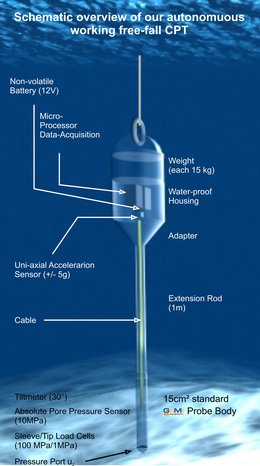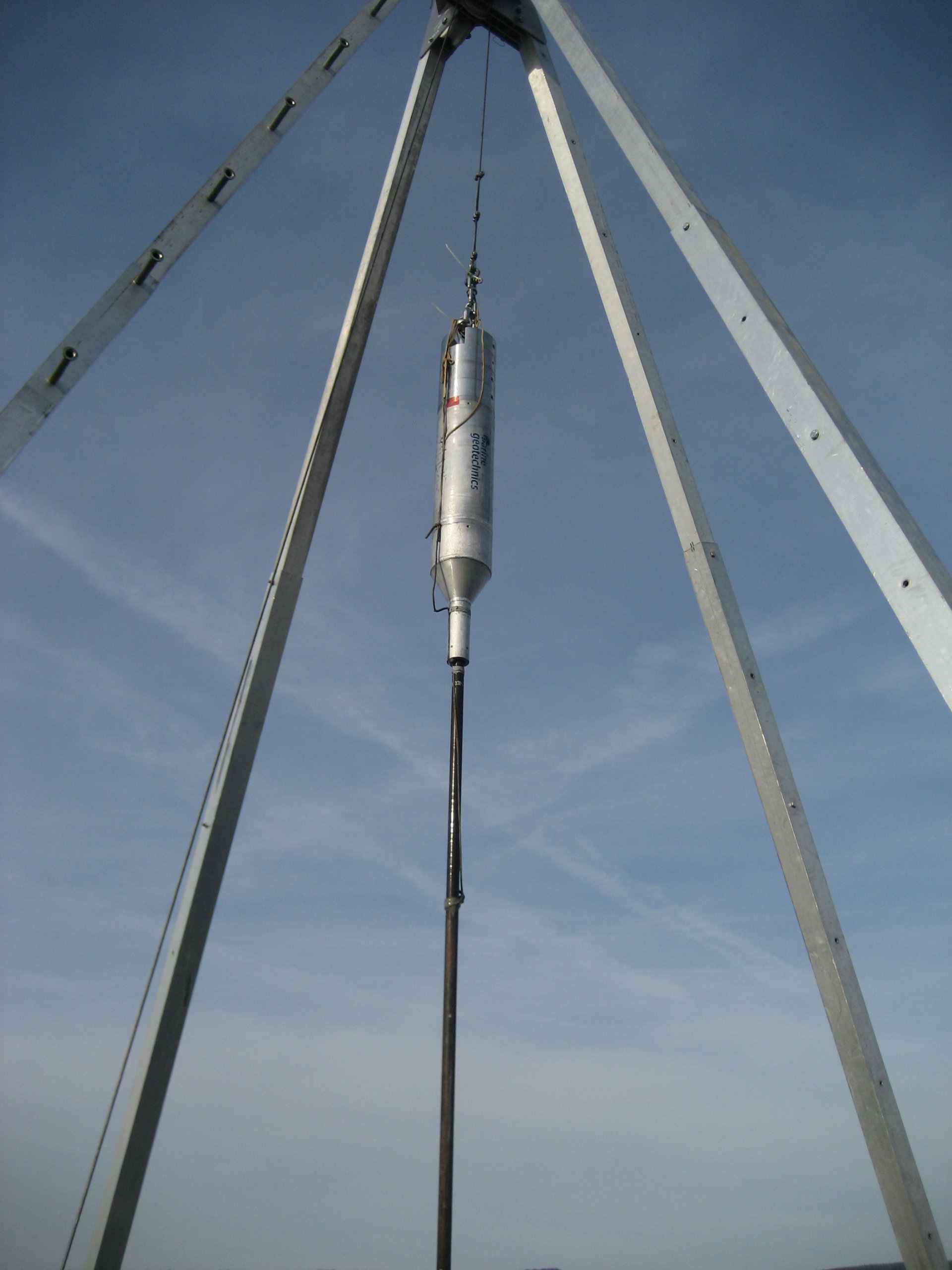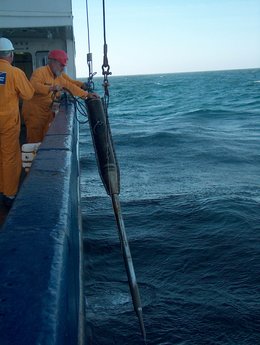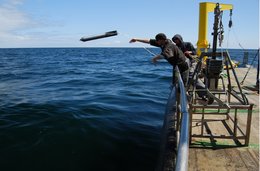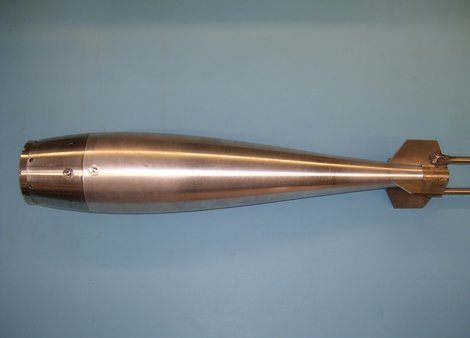Page path:
- Marine Geotechnics
- Technologies
- Free-Fall Probes
Free-Fall Probes
Sue
Shallow water CPT (Sue)
Information concerning the shallow water free-fall CPT probe (SW-FF CPT, maximum depth of operation: 200m) can be found in the following article:
Stegmann et al., 2006 (Sea Technology)
Since its development, teh instrument underwent several stages of improvement and is now available as 200 m version and 500 m version. The maximum length is 10 m.
Stegmann et al., 2006 (Sea Technology)
Since its development, teh instrument underwent several stages of improvement and is now available as 200 m version and 500 m version. The maximum length is 10 m.
Alice
Shallow water CPT (Alice)
Mary
Deep water CPT (Mary)
The maximum depth of operation for the deep water free-fall CPT (DW-FF CPT) is 4000m. Until now it has operated at depths of max. 2000m off Chile, Uruguay, in the Mediterranean Sea (Cretan Sea, Ligurian Sea), and in the North- and Baltic Sea.
Containing two differential and one absolute pressure sensors, it can measure pore-pressure at two different depth levels and hydrostatic pressure.
To facilitate a maximum degree of flexibility, the DW-FF CPT was designed to run either autonomously or by telemetry via a ship's wire. The system has been recently improved with a 1 kHz data logger and improved design (v2).
NIMROD Free fall penetrometer
Nimrod
NIMROD is a self-contained shallow water (200m) free falling penetrometer to characterize the sea floor with regard to its stiffness. It is handled very easily owing to its low weight and independence from ship equipment (e.g. winches) Thus, it is especially designed for rapid deployments from small boats and in areas where a deployment of standard-instruments is difficult because of high waves, strong currents, vicinity to installations, etc. Strong ship movements are not critical anymore because NIMROD is free falling.
The penetrometer is equipped with acceleration sensors (1.7 g, 18 g, 70 g, 250 g), tilt sensors, a pressure sensor, and a 1kHz data logger. It offers a choice of three different tip geometries (cone, cylinder, hemisphere) to allow a better adjustment to different types of sediments. Previous deployment include areas such as North Sea, Baltic Sea, and several harbours.
The penetrometer is equipped with acceleration sensors (1.7 g, 18 g, 70 g, 250 g), tilt sensors, a pressure sensor, and a 1kHz data logger. It offers a choice of three different tip geometries (cone, cylinder, hemisphere) to allow a better adjustment to different types of sediments. Previous deployment include areas such as North Sea, Baltic Sea, and several harbours.
FluMu penetrometer
FluMu
FluMu (short for Fluid Mud penetrometer) is a lightweight probe with a very sensitive tip designed to identify subtle changes in strength and density at the interface between sediment and water. Areas of use include coastal settings, harbours and estuaries where fluid mud accumulates, shelves where fibrebank materials or other altered deposits are accumulated, or very soft lake floor or seafloor regions (e.g. pockmarks, mud volcanoes, etc.).
The instrument comprises a pressure-compensated 0.5 kN GDS strain gauge for “tip resistance”, three accelerometers (1.7, 18 and 35 g), a Keller PA-33X pressure transducer, and a tilt sensor. Logging is carried out at up to 1 kHz with a 12 bit resolution. All electronics are located in a torpedo-shaped stainless steel housing of only half a meter length, making the light probe very versatile to use.
The instrument comprises a pressure-compensated 0.5 kN GDS strain gauge for “tip resistance”, three accelerometers (1.7, 18 and 35 g), a Keller PA-33X pressure transducer, and a tilt sensor. Logging is carried out at up to 1 kHz with a 12 bit resolution. All electronics are located in a torpedo-shaped stainless steel housing of only half a meter length, making the light probe very versatile to use.



